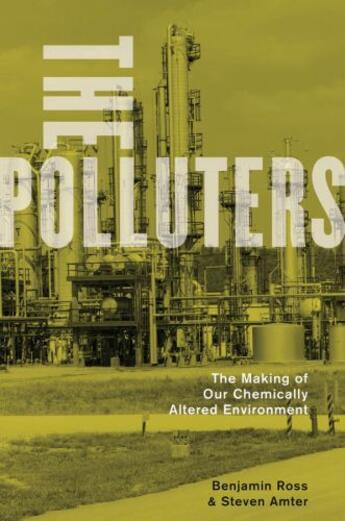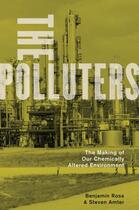-
Nombre de pages : (-)
-
Collection :
(-)
-
Genre :
(-)
-
Thème :
Non attribué
-
Prix littéraire(s) :
(-)
Résumé:
The chemical pollution that irrevocably damages today's environment is, although many would like us to believe otherwise, the legacy of conscious choices made long ago. During the years before and just after World War II, discoveries like leaded gasoline and DDT came to market, creating new... Voir plus
The chemical pollution that irrevocably damages today's environment is, although many would like us to believe otherwise, the legacy of conscious choices made long ago. During the years before and just after World War II, discoveries like leaded gasoline and DDT came to market, creating new hazards even as the expansion and mechanization of industry exacerbated old ones. Dangers still felt today--smog, pesticides, lead, chromium, chlorinated solvents, asbestos, even global warming--were already recognized by chemists, engineers, doctors, and business managers of that era. A few courageous individuals spoke out without compromise, but still more ignored scientific truth in pursuit of money and prestige.
The Polluters reveals at last the crucial decisions that allowed environmental issues to be trumped by political agendas. It spotlights the leaders of the chemical industry and describes how they applied their economic and political power to prevent the creation of an effective system of environmental regulation. Research was slanted, unwelcome discoveries were suppressed, and friendly experts were placed in positions of influence, as science was subverted to serve the interests of business. The story of The Polluters is one that needs to be told, an unflinching depiction of the onslaught of chemical pollution and the chemical industry's unwillingness to face up to its devastating effects.
Donner votre avis















